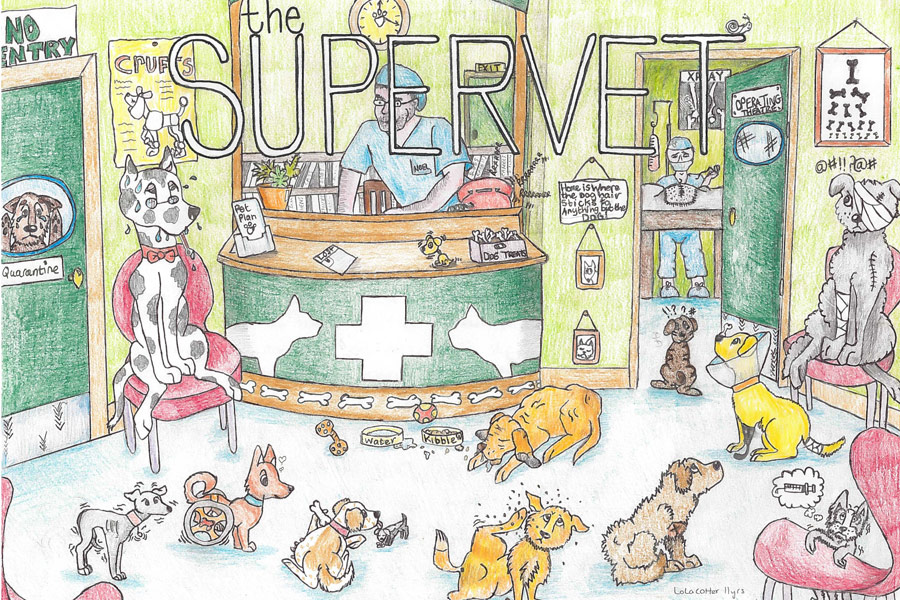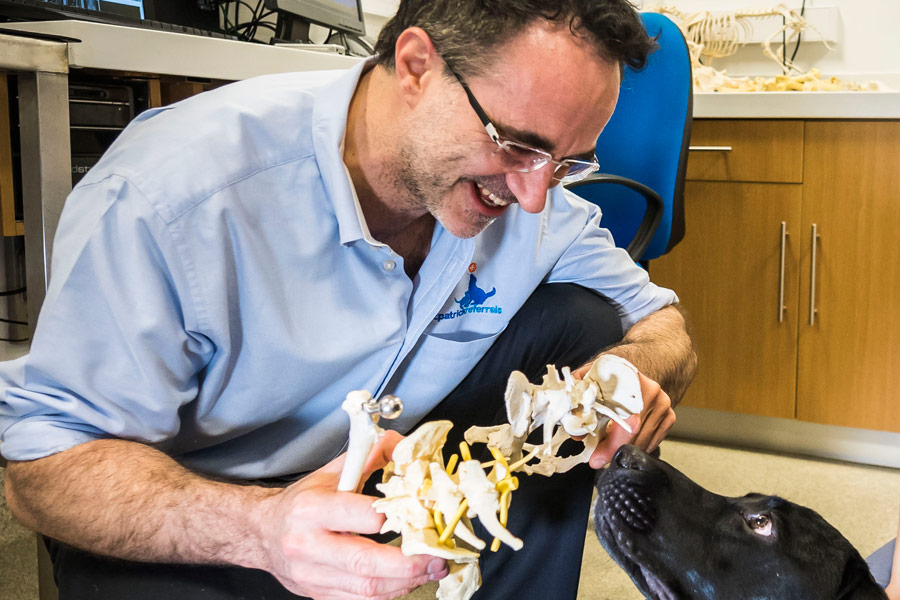
FitzKidz
Welcome to our dedicated centre for young people! Whether you are an aspiring vet, or want to learn more about the work we do, or simply just LOVE animals, this is the place for you!
Top tips on becoming a Supervet!
1. Be passionate about the care and welfare of all animals that share our planet
First of all, the most important thing is that you want to care for all kinds of animals and really want to improve their health and wellbeing – this is why we become vets and vet nurses after all!
2. Learning your stuff
Like any career journey you choose to go on, studying to become a vet can take a lot of work and determination. There will be exams to take and essays to write in order to achieve your qualifications, but the reward of spending a lifetime helping animals makes it all worthwhile.
3. Gaining experience
When you are around 14 years old, you will be able to do some work experience which is key for learning the more hands-on role and to teach you key skills. You might find it useful to ask your local vets, animal shelter, stables, farms, kennels or anywhere that works with animals. Unfortunately, referral practices similar to Fitzpatrick Referrals are unsuitable for work experience. As our work is very specialist, you would gain no hands-on experience and only be able to watch from the back of a busy room.
Spaces for work experience tend to go really quickly, so ask your family or teachers for help and make sure you apply in good time. Remember to ask lots of questions whilst on your work experience, the team around you are there and want to help you learn! Last but not least… enjoy it! It is a fantastic opportunity to learn from others and get up close with all sorts of different animals (and their families!)
4. Never give up
You are about to go on a long journey towards becoming a vet, but we promise it is worth it! Sometimes things will get tough, but persevere and all of your hard work will pay off!

Q & A with Professor Noel Fitzpatrick
Why did you want to become a vet?
I knew from an early age that I wanted to become a vet. I grew up on my family farm in Laois, Ireland and my best friend was my dog who was the greatest companion any boy could wish for. I struggled at school and didn’t have many friends, but my dog was always there for me. As I grew up, I knew I wanted to give something back to all animals to help cure disease and if possible, to restore them to good health and wellbeing.

What did you study and what qualifications do you have?
It may surprise you that I was unable to read and write for a very long time. I loved poetry however, and eventually I learnt to read my favourite poet Oscar Wilde. When I was older I went to the University College Dublin where I graduated with a Bachelor of Veterinary Medicine. I also completed scholarships at the University of Pennsylvania and University of Ghent. Following this, I went on to achieve junior qualifications of RCVS Certificates in Small Animal Orthopaedics and Radiology. I wanted to gain further skills too to help me in my work, so I also attained boarded specialist status by examination in both the USA and the UK, with inferior accreditation of the American College of Veterinary Sports Medicine and Rehabilitation and DSAS (Orth) – the junior qualification of Diploma in Small Animal Surgery (Orthopaedics).
Do you have any advice on becoming a vet?
I believe the future of veterinary medicine is being shaped right now by the young vets of today being inspired and knowing what is possible in their lifetime. What matters most is that you genuinely care. People don’t care what you know, until they know that you care! You can follow our four top tips to achieving your dream, listed above. There are also plenty of websites and books out there that will help guide you, such as the British Veterinary Association website. Note: You might find this video interesting – it’s a short video from the University of Surrey. They asked me to speak on film to help inspire the vets of the future who might be considering the new University Vet School.
What drives you?
It is when people come to me and my team in their time of need when their animal family member is unwell. Their animal friend represents so much of their hope and love. It’s a very anxious time for all concerned and I try to do my best to help. We treat every patient we see as if it was our own because the love we feel for our animal family is incredibly special and incredibly important.
What made you want to put your work on TV?
I wanted to make a TV show that no one had before. I wanted to make a show that wasn’t just about incredible medical science, but a show that had a really important message about the animals we share our world with. The Supervet has provided a way in which I can communicate to people through their television screens and share a powerful message about love, hope and redemption.
Which of your inventions is best and why?
I think the three areas in which I hope to have made the greatest inventions are elbow disease, spinal disease and amputation prostheses. I guess the greatest contribution has been made in spinal fusion and disc replacement, and in limb amputation prostheses. I believe that the PerFiTS (percutaneous fixation to the skeleton) device is highly more advanced than any other implant that has been used for amputation prosthesis in dogs. Check out the patient stories of cat Pixie and cocker spaniel Cookie, who both benefited from this procedure.
Who has been your most memorable patients and why?
When an animal comes in with an unusual or challenging problem, you have to try so hard to find an answer to return that animal back to a pain free life whilst considering the morally right path at that moment in time. Going through a special journey together with that patient and then seeing them go home is truly very special.
When did you decide to open Fitzpatrick Referrals?
I had always wanted to build a home for the dreams I held when I first became a vet. After working for more than 10 years to build my ‘field of dreams’, Fitzpatrick Referrals became a reality in 2005 and is going strong 19 years on.
What is your greatest wish for the future?
When I was a child, I thought it was very unfair that animals were giving their lives for human medicine, but not for the animals too. It never went two ways. I strongly wish that there should only be One Medicine. This is the idea that vets and doctors should work together in order to progress medicine together. I founded the charity Humanimal Trust which aims to do this. It will build closer working relationships between vets and doctors so everyone benefits! If you want to find out more, you can visit Humanimal Trust.
Do you have any animals?
I have two maine coon cats, Ricochet and Excalibur who are my best friends and companions and I love them very much.